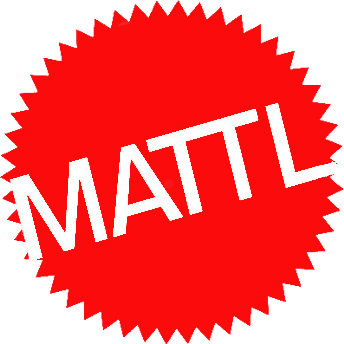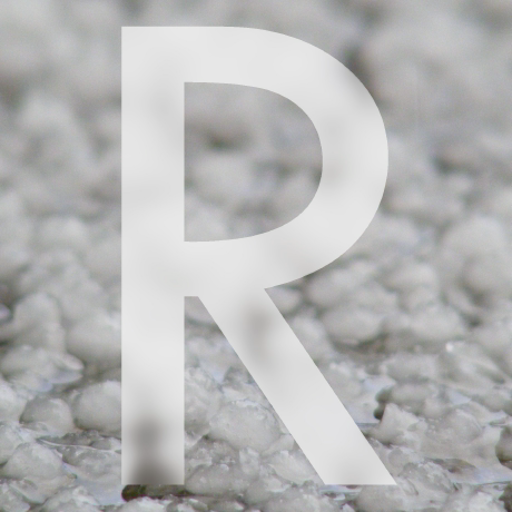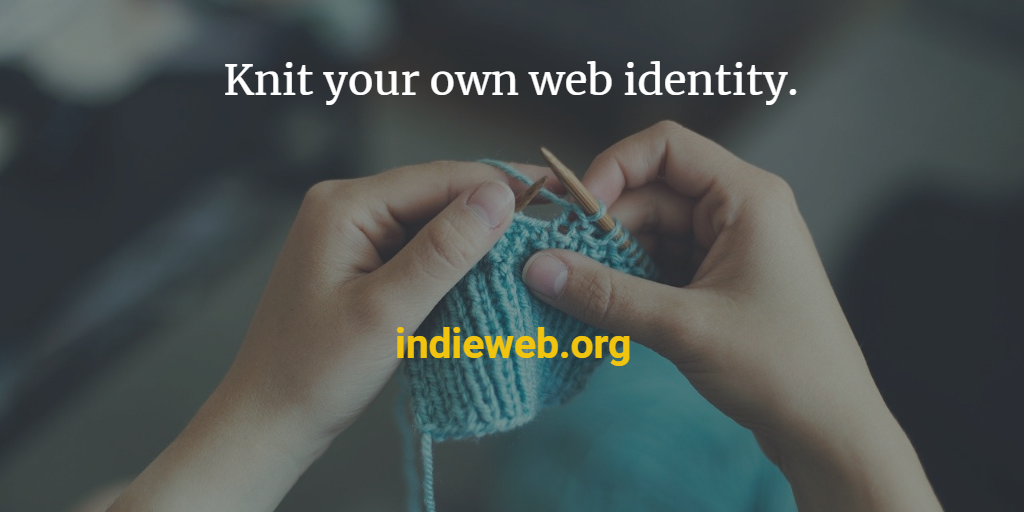personal-domain

This article is a stub. You can help the IndieWeb wiki by expanding it.
A personal domain is a domain name (or web address) that you personally own, control, and use to represent yourself on the internet. Getting a personal domain is the first step towards getting on the indieweb, and is therefore a requirement for IndieMark Level 0.
A subdomain (like example.wordpress.com or example.github.io) is not something you own, rather you are at the mercy of the corporation that owns the actual domain name, who thus has ownership and control of all subdomains as well.
How
- Get your own personal domain name - Ask a friend or colleague for a domain name registrar that they use and like/trust/respect etc.
- Domain Privacy - Note that most domain name registrars will make your personal information (name, mailing address, phone number and email address) publicly available via whois lookups. Some registrars offer domain privacy options, so that instead of your personal details the registrar's details will be in the whois directory. Only use domain privacy if you fully trust the provider of the service -- disputes about domain name administration or transfers may get tricky if you are not listed as the legal owner of the domain.
Choosing a personal domain
The domain you choose will be your “name” on the web, and will ideally stay available forever, so it’s worth thinking carefully about it.
There are many TLDs to choose from (e.g. .com, .net, .org, etc.). Most of them cost different amounts of money, and some come with additional restrictions or conditions. If the domain name you want is taken under one TLD, it may be available at another.
Domain Registrars
A domain name registrar is an organization that will register domain names for you typically for an annual fee.
Considerations
- Configurability - You should be able to set up all record types (A, CNAME, MX, TXT) for as many subdomains as you'd like/need.
- Email forwarding - does the registrar offer free email forwarding? This is useful if you want an @yourdomain.com email address that forwards to an existing account.
- Auto-renew - it's easy to accidentally let a domain name registration expire; some registrars let you set up email reminders or an automatic renewal to prevent this from happening.
- Domain Privacy - Note that most domain name registrars will make your personal information (name, mailing address, phone number and email address) publicly available via whois lookups. Some registrars offer domain privacy options, so that instead of your personal details the registrar's details will be in the whois directory. Only use domain privacy if you fully trust the provider of the service -- disputes about domain name administration or transfers may get tricky if you are not listed as the legal owner of the domain.
- Bundled hosting? Shop around for the best registrar and best host for your needs. They do not need to be the same.
Opinions & Recommendations
Note: Listed in alphabetical order.
Currently In Service
DNSimple
- https://dnsimple.com
- Used by
Jacky Alciné
Jacky Alciné 30 Nov 2019: Excellent UX, 2FA support
Freenom
- Freenom, a provider of many free domain names
- Used for some ancillary sites by
 fluffy
fluffy - Allows IDN registrations (including emoji)
- Domains are private by default
- You can also opt to pay for a domain if you want an ownership guarantee
- Downside: used by a lot of spammers; don't use a free domain for your email address if you want people to actually read it
Gandi
- https://gandi.net
- Used and recommended by
 rascul,
rascul,  Hans Gerwitz,
Hans Gerwitz,  Ryan Barrett.
Ryan Barrett.  Dr. Matt Lee used them but their prices went up significantly so I moved to Porkbun.
Dr. Matt Lee used them but their prices went up significantly so I moved to Porkbun.- Simple UI, great service, ethical European company.
Hover
- https://hover.com
- Used and recommended by
 Eddie Hinkle,
Eddie Hinkle,  bear,
bear, Thomas Vander Wal, and
 Kevin Marks
Kevin Marks - Free Whois Privacy, Good UX, Doesn’t try to trick you into services.
Netim
- https://www.netim.com/en
- Used and recommended by
 zacharykai
zacharykai
NameCheap
- https://namecheap.com/
- Used and Recommended by
 Aaron Parecki,
Aaron Parecki,  Kartik Prabhu,
Kartik Prabhu,  Kimberly Hirsh and
Kimberly Hirsh and Joe Crawford.
- Free Whois Privacy
Porkbun
- https://porkbun.com
- Used by
Daryl Sun,
Jim Winstead and
 Dr. Matt Lee
Dr. Matt Lee - Free Whois Privacy, 2FA support
Past Services
Google Domains
- No longer accepting new signups. Accounts being migrated to Squarespace.
- Read more IndieWeb Experience with Google Domains
More Information
The wiki also has pages for each of these registrars:
Why
Why? All the reasons listed in why. This is the key first step to joining the indieweb.
Examples of domains being used IRL for disambiguation
Two employees at http://corp.oz.com/ were both called Sveinbjörn — one held sveinbjorn.is, the other sveinbjörn.org. A common company practise was to reply to “where’s Sveinbjörn?” with “dot is or dot org?”
Barriers to entry
Buying and configuring a domain name can be a challenge, especially if you have no prior experience with setting up a website. This is something domain providers and hosting providers who support registering custom domains should think about when designing products.
Some of the barriers for entry to buying and configuring a domain are:
- Understanding why having a domain is beneficial
- Configuring a domain with your website / hosting provider
- Understanding www
- Does your domain have www set up?
- Do you need to use www at the start of your domain when you tell someone about your site?
- Understanding HTTPS (reference the padlock in browsers) and why it might appear at the beginning of your domain
- Knowing how to modify your domain settings
- This is platform specific. Registration services / CMS services with domain registration options should give clear guidance on how to change domain settings.
- Probably more reasons...
jamesg.blog proposed registration services / CMS services with custom domains offer a really simple onboarding process for those who want to register a domain:
"Domain names let you choose how people access and refer to your site on the web. You can choose any domain name you want for your site. When someone visits your site, they will see a little padlock and https:// before your domain name. This tells the person looking at your connection to a website is encrypted and secure. You can configure your domain to meet your needs manually if you want to by visiting our settings page."
The language could be refined but aims to illustrate the sort of language that should be used when services introduce people to their own personal domains.
Registering a personal domain is confusing even for people who have domains. For instance, navigating through GoDaddy can be difficult if you need to configure custom DNS settings. To encourage people to have their own domain -- which they can associate with all of the content they publish on the web -- the process of getting started must be as simple as possible.
Opportunities for domain education
It could be interesting if schools taught domain names in web class. Such a class would cover:
- What is a domain name?
- What are the main parts of a domain name?
- Why were they invented?
- What is a URL? What are the parts of a URL?
- What is www? Is it always necessary to add www. to a domain.
- Why might one need a domain name?
High schools in Scotland teach web development as part of the National 5 / Higher computing course so this sort of thing could fit in well there. Perhaps there are analogous courses / classes in different education systems where such education about domains would be relevant / useful.
Articles
On identity: 2017-01-03 : The Real Name Fallacy (archived from the original)
See Also
- Getting Started
- short-domains
- DNS
- hosting
- IndieMark
- account
- multi-site indieweb
- digital sovereignty
- https://medium.com/@ramshackleglam/hackers-stole-my-website-and-i-pulled-off-a-30-000-sting-operation-to-get-it-back-143d43ee3742
- 2017-03-17 EFF: If the Government Can't Get Domain Seizures Right, Why Would Big Pharma Do Better?
- Criticism of alternatives:
 Aaron Parecki: a big problem with the other promises of "use X so you don't have to register a domain name" is that quite often X involves a lot more work/time/money
Aaron Parecki: a big problem with the other promises of "use X so you don't have to register a domain name" is that quite often X involves a lot more work/time/money - https://twitter.com/vboykis/status/1194067698176659457
- "I can forgive Twitter for stuff like,,,destroying the free world and inciting cancel culture, but I cannot forgive it for taking away the direct link to my profile picture, because I used that link all the time for speaking bios." @vboykis November 12, 2019
- Why: https://twitter.com/pnwwriting/status/1212463528877199364
- "Caveat: if you're using blogger, WordPress, tumblr, wix, or any other "free" platform to blog you're STILL using someone else's domain, software, bandwidth, etc. and your words can disappear just as quickly when they go under/get bought/change the TOS. (Geocities anyone?) 1/2" @PNWwriting January 1, 2020
- Criticism of Gandi.net for poor handling of snapshot backups (on same machine and disk!), backpedaling on snapshots being backups despite marketing/sales copy claiming they are, and continued defensive responses on Twitter: https://twitter.com/andreaganduglia/status/1215199147701231616
- "So you have lost out data and distrupt our services and now it's our job recover from backups? Are snapshots available?
@gandi_net @gandibar @gandinoc" @andreaganduglia January 9, 2020
- "So you have lost out data and distrupt our services and now it's our job recover from backups? Are snapshots available?
- More criticism (see whole reply-context thread up) of Gandi.net poor handling of snapshot backups and how they responded: https://twitter.com/andreaganduglia/status/1215290652742823936
- "You wrote in clear words that snapshots are backups. Today we find out that you keep backups on the same data filer (don't do that it's an industry wide knowledge).
I have my data backups, but without snapshots I have to face the manually reinstall of all my VPS on that filer." @andreaganduglia January 9, 2020
- "You wrote in clear words that snapshots are backups. Today we find out that you keep backups on the same data filer (don't do that it's an industry wide knowledge).
- Criticism of emoji domains (pdf)
- 2020-01-21 Dolly Parton identity meme highlights the different identities and uses for various social silos: https://www.facebook.com/DollyParton/photos/a.10150216209199755/10157178777019755/?type=3&theater (further details: https://www.cnn.com/2020/01/24/entertainment/dolly-parton-social-meme-challenge-trnd/index.html)
- https://twitter.com/iamdevloper/status/1306249557924290560

- "I promise" @iamdevloper September 16, 2020
- Criticism: UX to setup and maintain is too high a barrier to expect of everyone (or even only "mobile phone users"). Note how often domains get hijacked via scams or basic misconfiguration, not to mention it’s pretty tricky to understand the fiddly bits of domain registration, DNS hosting, web hosting, etc. (per #indieweb-meta chat)
- Brainstorming: Goals for making IndieWeb identity "easy": when someone presents a UX for successfully picking a domain name that is comparable in ease of use to picking a username on a service like Twitter or Instagram, then we can start to call getting a domain name "easy". Until then, no, it is not "easy", and any insistence on that erases the real difficulties that folks experience, especially compared to their other name-selection-to-use-a-service experiences
- https://domain.garden/, a search tool maintained by Peter Hagen, for aid in coming up with clever domain names with pricing and links to multiple providers
- Collecting domains is definitely a thing. Some may register a domain for potential future projects which can be the focus of intense procrastination. Example: "Dan McKinley is locked into a serious domain collection and has decided to push it as far as he can." http://dotclub.club/
- "_But amid our slender repertoire of agency are the labels we choose for our labors of love — the works of thought and tenderness we make with the whole of who we are."_—Maria Popova, on choosing a new name for her website
- Your identity represents you, not just a (even your biggest) project. People finish, abandon, delegate projects, thus your identity MUST NOT be conflated with one particular project.
- HN criticism of DID (and W3C) https://news.ycombinator.com/item?id=31941128
- "Something that should be a bit of a warning flag is that I have two decades of identity-related experience but I still have no idea what DID even is.
For reference, I've worked with three vendors' implementations of LDAP, several versions of SAML, OAuth, JWT, Okta, Azure Active Directory, etc, etc... I've even deployed Smart Card authentication in the field several times.
I literally have no idea, not a clue what DID is supposed to be in a practical sense, despite having read a significant volume of material on a subject.
Like, okay, it's "identity"... somehow? How? What? Where?
The documentation is impenetrable buzzword-compliant gibberish that makes SAML's documentation look like crystal-clear poetry in comparison." @jiggawatts July 1, 2022
- "Something that should be a bit of a warning flag is that I have two decades of identity-related experience but I still have no idea what DID even is.
- beware of domain names similar to your own being squatted, or of unintentionally linking to squatted domain-name typos instead of major media sites (e.g. links from social media) https://www.disinfo.eu/doppelganger
- ""
- ^ Related Twitter thread, unrolled: https://threadreaderapp.com/thread/1574735070342127617.html
- https://twitter.com/SwiftOnSecurity/status/1596572353269481476
- "If you are rethinking your approach to publishing yourself, it should be towards a domain name you own even if it's hosted on a managed service." @SwiftOnSecurity November 26, 2022
- Tips for choosing a personal domain: https://tantek.com/2023/004/t1/choosing-domain-name-indieweb
- "Choosing a domain name is a key step toward getting your own #IndieWeb site. Like choosing an account name (chat, email, Mastodon) but global, feels more personal, and like more of a commitment. Six tips:
1. Use some form of your name (given & family), so you have a chance of having your site and posts show up when people search for you
2. Or a made-up nickname that fits you now and into the future
3. Something easily memorable, speakable, & spellable to better tell people in-person or on the phone (i.e. avoid "cute" or "weird" spellings like dropping vowels)
4. Use https://domai.nr/ to quickly try variants
5. Try to get a .com .net or .org, which are still seen as more legitimate. A .me is ok, as is your country/region (e.g. .us .uk .eu etc. see https://indieweb.org/ccTLD for more examples)
6. Shorter is better for many reasons: https://indieweb.org/short-domains
Once you find an available name, choose a domain registrar, which is like choosing a phone company, except there are more of them. Some recommendations: https://indieweb.org/personal-domain#Domain_Registrars
Got questions, or want more tips & opinions?
Ask in https://chat.indieweb.org/ — you’ll get a lot of sympathy & support as nearly everyone there has gone through this process, and many are eager to share their experiences to make it easier for new folks.
https://indieweb.org/naming is hard, it’s ok to ask for help.
This is day 4 of #100DaysOfIndieWeb #100Days
Day 3: https://tantek.com/2023/003/t1/indieweb-path-chosen-why" @Tantek Çelik January 4, 2023
- "Choosing a domain name is a key step toward getting your own #IndieWeb site. Like choosing an account name (chat, email, Mastodon) but global, feels more personal, and like more of a commitment. Six tips:
- https://www.w3.org/TR/webarch/#uri-assignment (specifically 2.2.2.1. URI ownership)
- To do: make a new separate page for domain registrar by extracting the section on this page and leaving a summary in place. We need a separate page that clearly and simply lists which domain registrars people recommend (or not) or otherwise have experience with and their features or lack thereof.
- 2025-05-25
 rubenwardy How can we own our identity on the Fediverse?
rubenwardy How can we own our identity on the Fediverse?

